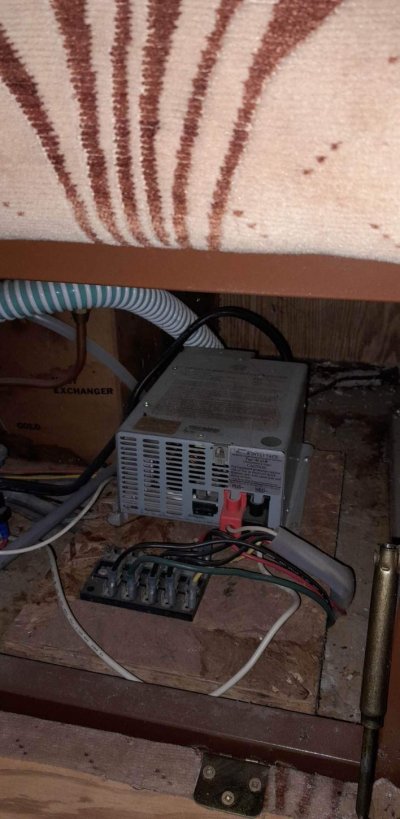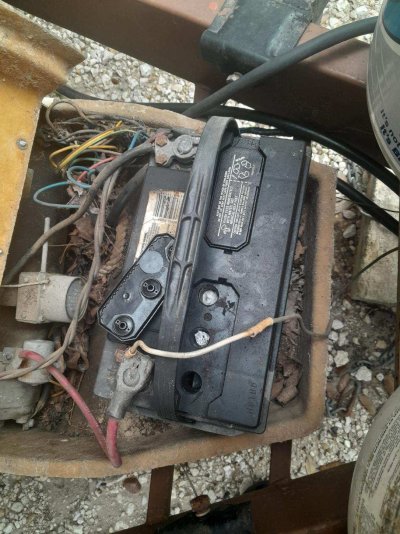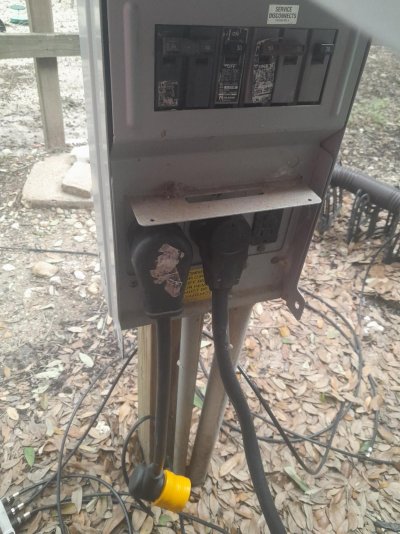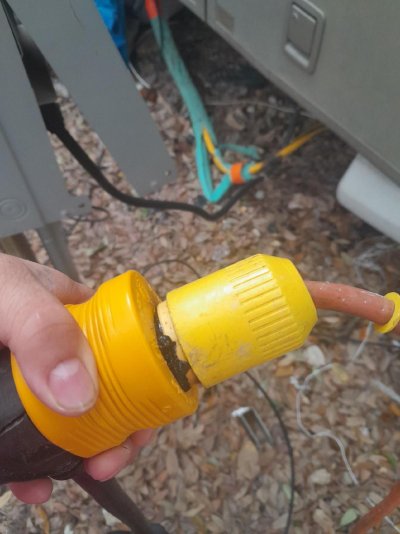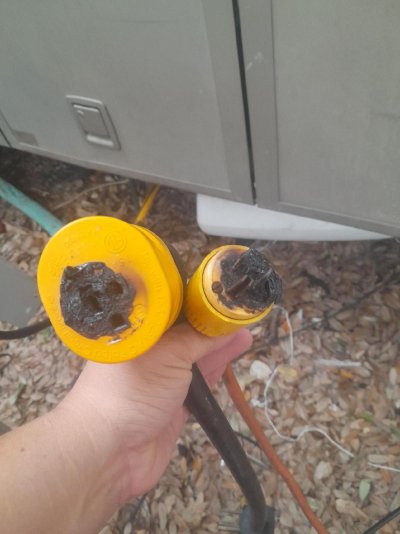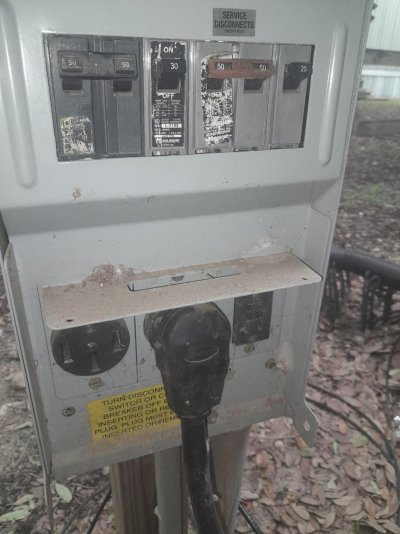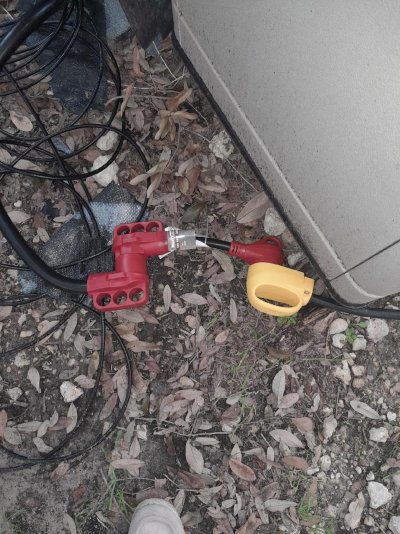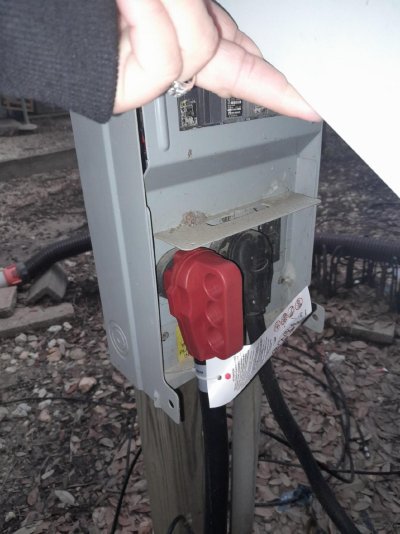pault86
New Member
The caregiver who helps take care of my elderly dad lives in a 1987 8721 Funlite FLL. A few nights ago she was running what for her is a normal AC load she uses all the time - air conditioner (not on highest setting), TV, refrigerator, and a 60 watt lamp. What we think is her master switch was in the "on" position.
Suddenly the lights began to flicker and then dimmed and went dark in about 5 seconds. The AC appliances also went off. There was no sound like a breaker tripping or a fuse popping but when she looked at what we think are the 12 volt distribution fuses there was a 32 volt 30 amp fuse blown - it had a hole in the middle.
She has not returned to the trailer but we are trying to understand what happened so we can talk intelligently to try to get help from local trailer repair folks.
Since the lights slowly went dim it seems like the 12 volt system switched to battery and drained quickly. Does that mean something like the water pump was frozen up and drawing too much current?
Also, if the fault was in the DC system, why did the AC appliances go off? No other trailers in the campground lost power so shore power was probably on and okay.
Attached is a picture of her power converter. It does not look original. The DC fuses are in the foreground of the picture. The 32 amp fuse that was blown was behind the yellow wire on the far right.
Can anybody help us understand what happened and what we need to do to test they system and get it repaired?
Suddenly the lights began to flicker and then dimmed and went dark in about 5 seconds. The AC appliances also went off. There was no sound like a breaker tripping or a fuse popping but when she looked at what we think are the 12 volt distribution fuses there was a 32 volt 30 amp fuse blown - it had a hole in the middle.
She has not returned to the trailer but we are trying to understand what happened so we can talk intelligently to try to get help from local trailer repair folks.
Since the lights slowly went dim it seems like the 12 volt system switched to battery and drained quickly. Does that mean something like the water pump was frozen up and drawing too much current?
Also, if the fault was in the DC system, why did the AC appliances go off? No other trailers in the campground lost power so shore power was probably on and okay.
Attached is a picture of her power converter. It does not look original. The DC fuses are in the foreground of the picture. The 32 amp fuse that was blown was behind the yellow wire on the far right.
Can anybody help us understand what happened and what we need to do to test they system and get it repaired?

